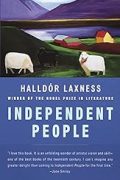
Rating: 7.5/10.
David Eimer’s second book, after “The Emperor Far Away”, describes all the corners of Burma / Myanmar. This country is seldom visited, is ruled by an oppressive military junta, and is far less developed compared to neighboring countries in Southeast Asia like Thailand and Vietnam. The Burmese people migrated there from Yunnan around the 12th century; the British took over as an extension of its India colony; the military took over in 1962 and has been in power ever since then.
Cyclone Nargis hit the Irrawaddy delta in 2008, killing around 150k people. Not only did the military junta do little to help, they actively blocked international aid, fearing international exposure. This drew widespread criticism of crimes against humanity, and they relented after a week. It shows how corrupt the government is, and how little they care about the people — the top army leaders are wealthy while most Burmese live in poverty; peaceful university demonstrations are violently put down by the military.
The main religion in Burma is Buddhism, especially around the Irrawaddy valley. Many Buddhists are racist against the Muslim minority (about 10% of the population), who are systematically denied opportunity and treated as foreigners, despite having been there for generations. The Rohingya crisis is the most well-known, but this racism is present everywhere. The Chin state bordering India is Christian, after efforts of missionaries there.
The Shan state in the northeast, bordering Yunnan and Thailand, is home to numerous minorities including the Shan, Tai, Lisu, Lahu, Ta’ang, Wa, etc. They struggle for independence but are not unified, and often fight against each other. A lot of this region is loosely regulated and de facto independent, and drugs like opium and heroin are produced here.
This book explores Burma in a lot of detail; overall, Burma is very poor and undeveloped and the government has failed its people. Still, there’s a lot of diversity between different regions, with various ethnic groups having varied issues, so it’s not at all a unified country. Compared to Eimer’s first book, the tone of this book is a lot more depressing and less wonderous. I still want to go to Burma sometime, but now I see how it’s a deeply troubled country, and the experience is likely to be not so comfortable.



